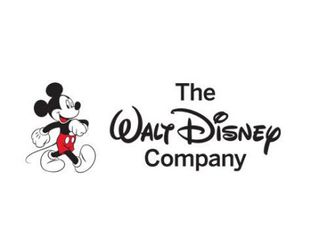Pondering a Possible Disney-Netflix Pairing

The past 12 months have been rough on The Walt Disney Co., with cord-cutting, cord-shaving and skinny bundles eating away at its flagship cable network ESPN’s subscriber base and, more recently, with the abrupt resignation of chief operating officer Thomas Staggs, heir apparent to the CEO throne.
As the perennially rock-solid Disney’s foundation begins to show some cracks, some analysts are calling for some radical changes, like opening its wallet wide to purchase subscription video-on-demand pioneer Netflix.
BTIG media analyst Rich Greenfield, a sharp critic of Disney’s failure to develop a direct-to-consumer strategy for its content and what he calls its overpayment for sports rights, believes a Netflix buy could solve two looming Disney problems in one swoop.
Greenfield in a blog called a Netflix deal an “acquihire,” made to bring in additional management expertise as well as assets.
While a Netflix-Disney pairing would create a formidable programming offering across all devices, mixing Disney’s movie studio, cable and sports content with Netflix’s original shows and deep library, the best part of the deal could be what it potentially adds to the C-suite.
With Disney chairman and CEO Bob Iger slated to retire in 2018, Netflix CEO Reed Hastings, whom Greenfield calls “a visionary CEO who understands the future of content and video programming,” could easily slip into the top role. Netflix could also solve Disney’s direct-to-consumer dilemma. It would make an over-the-top ESPN service more palatable and fill Netflix’s one programming hole, live sports.
But the price would likely be enormous. Greenfield doubted Netflix would sell for less than $100 billion. That’s well outside the $4 billion to $7 billion range of Iger’s most recent deals with Pixar Animation Studios, Lucasfilm Ltd. (which brought Disney the Star Wars movie franchise) and Marvel Entertainment (solidifying its superhero content slate).
Multichannel Newsletter
The smarter way to stay on top of the multichannel video marketplace. Sign up below.
“Buying Netflix is an awfully expensive acquihire, but it could be Disney’s only hope,” Greenfield wrote.
Pivotal Research Group CEO and senior media & communications analyst Jeff Wlodarczak is not so sure. He was an earlier proponent of Disney buying a stake in Netflix back when the stock was in the $40 per share range, when a Netflix stake would have let Disney capture some of the upside in the SVOD business early on and when Disney would have strengthened Netflix with more content.
An outright purchase of Netflix today, when it is at the height of its value — it was priced at $110 per share last week — could be throwing large sums of money at a bad idea.
With Netflix’s enterprise value of $45 billion, Wlodarczak said a deal could be done at $65 billion (representing a 50% premium) but would be too expensive for Disney. And it would likely remind investors of another illtimed and value-sucking mega-merger: Time Warner Inc.’s $64 billion marriage with AOL in 2000, considered to be the worst media deal of the 20th century.
Disney already has a content deal with Netflix, Wlodarczak noted. If it wants to go direct-to-consumer, he said, it has the content through ESPN, ABC and Disney Channel to do so on its own.
“The risk, of course, is that no one monetizes the current pay TV ecosystem better than Disney,” Wlodarczak said, adding that it would not be in Disney’s interest to create a low-cost alternative to subscription TV.
An ESPN-Netflix pairing could also mean the consumer price for Netflix would rise materially, were Disney to try to emulate what it gets from distributors today. And reportedly only 20%-30% of TV viewers watch sports.
“At this point Disney is better served letting SVOD develop and trying to continue to mark up the price of their content as much as possible to multiplying SVOD players,” Wlodarczak said.
